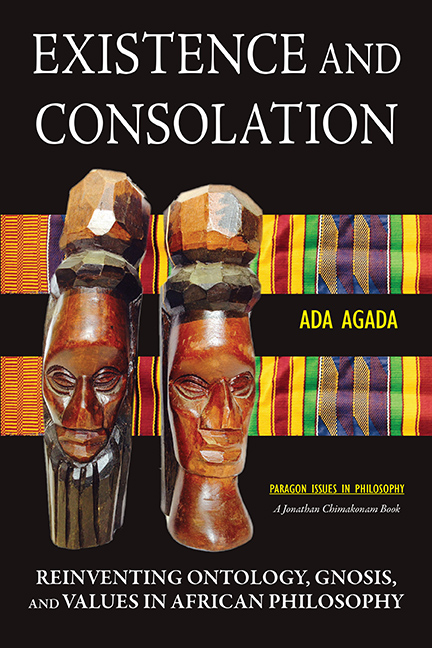by ADA AGADA
 IMAGE/Paragon House
IMAGE/Paragon House
‘Consolation philosophy’ understands the human being as a unity of feeling and reason, in a cosmos rich with primal emotion
The ambitious African philosopher finds herself between the devil and the deep blue sea. She has to convince the West that she has something interesting to say about philosophy. She has to insist that African philosophy is not the same as ‘philosophy in Africa’. And by insisting on African philosophy, she stamps her foot hard on the ground and defends the virtue of originality: innovative thinking that’s not subservient to the dominant Western tradition of philosophical thinking and which, at the same time, transcends traditional African thought. The other front of her struggle is Africa. She has to confront a very limited local audience averse to radical creative thinking. Most of her colleagues don’t think that ‘originality’ is possible or even desirable. These are colleagues who studied Western philosophy all through college, and had come to see Western philosophy as the supreme and only universal template of philosophy.
Aristotle held that philosophising begins with wonder. The African philosopher Jonathan Chimakonam suggested that, while wonder might have instigated Western philosophy, it was frustration that spurred African philosophy, with the emergence of radically Afrocentric nationalist philosophers such as Léopold Sédar Senghor, Aimé Césaire and Kwame Nkrumah who saw in philosophy an ideological weapon for attacking those who sought to denigrate and subjugate Africans culturally and politically. What is needed now is a 21st-century African synthesis that can help to resolve this struggle. ‘Consolation philosophy’ – spurred by both wonder and frustration – attempts to do just that.
The idea of ‘consolation’ philosophy does not imply an attempt to comfort philosophers. Rather, it suggests a philosophy of life, a project similar to the human-centred philosophical projects of Western existentialists such as Martin Heidegger, Jean-Paul Sartre, Friedrich Nietzsche, Gabriel Marcel, Søren Kierkegaard, Miguel de Unamuno, Emmanuel Levinas and German idealists such as Arthur Schopenhauer. Here I offer a brief presentation of this African philosophical synthesis, which I hope will help to resolve the dilemma eloquently put forward in 1997 by professor of philosophy at Penn State University Robert Bernasconi: ‘Either African philosophy is so similar to Western philosophy that it makes no distinctive contribution and effectively disappears; or it is so different that its credentials to be genuine philosophy will always be in doubt.’
Human existence has long fascinated me. I realised as a child that maximising joy is the goal of human striving. It didn’t seem to matter whether one was a genius or an imbecile, a first-rate scientist or the lowliest janitor, female or male, educated or illiterate. The common denominator is the striving that goes into the moment-to-moment maximisation of this specific emotion of joy in all humans. This fundamental status of emotion in human life awakened an enduring philosophical interest in me.
One evening, sitting on the veranda of my family home with the African sun setting in the western sky and my eyes on the pages of Plato’s Republic, I decided to commit myself to philosophy – African philosophy in particular. I opted out of studying biochemistry at university and started a programme in philosophy and religion. The main objective of consolation philosophy took shape in my undergraduate days: demonstrating the possibility of a thoroughgoing philosophy that comprehensively addresses the emotion-intellect relation while at the same time recasting the question of being (that is, an investigation into what is most fundamental/primordial) in terms of what I call mood. It was not until I began graduate studies that I was able to develop a final thesis of my consolationist project: the Universe has a purpose that the human mind can intuit as the realisation of freedom in the sphere of conscious beings and the perfection of nature in the sphere of nonconscious beings.
Aeon for more
